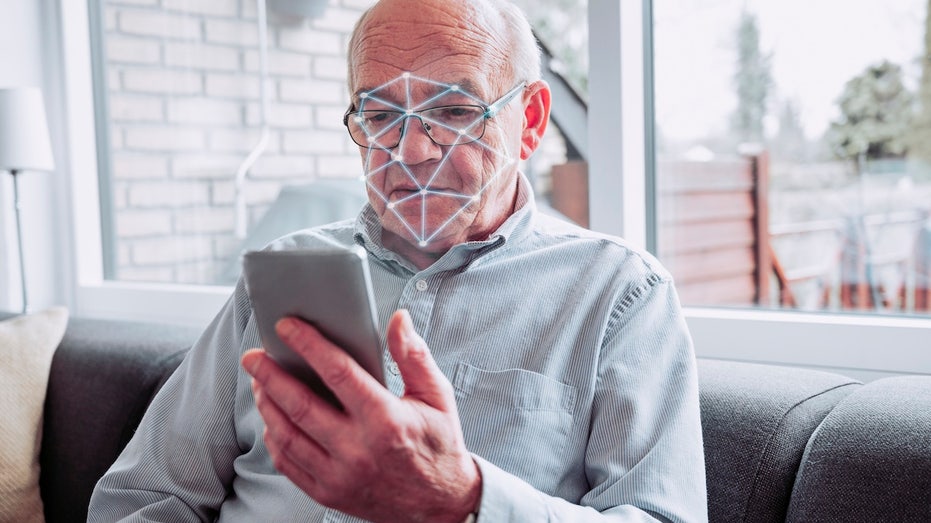AI tool scans faces to predict biological age and cancer survival
A simple selfie could hold hidden clues to ones biological age and even how long theyll live.Thats according to researchers from Mass General Brigham, who developed a deep-learning algorithm called FaceAge.Using a photo of someones face, the artificial intelligence tool generates predictions of the subjects biological age, which is the rate at which they are aging as opposed to their chronological age.MUSIC CONDUCTOR WITH PARKINSONS SEES SYMPTOMS IMPROVE WITH DEEP BRAIN STIMULATIONFaceAge also predicts survival outcomes for people with cancer, according to a press release from MGB.The AI tool was trained on 58,851 photos of "presumed healthy individuals from public datasets," the release stated.To test the tools accuracy, the researchers used it to analyze photos of 6,196 cancer patients taken before radiotherapy treatment.Among the people with cancer, the tool generated a higher biological age that was about five years higher than their chronological age.PARALYZED MAN WITH ALS IS THIRD TO RECEIVE NEURALINK IMPLANT, CAN TYPE WITH BRAINThe researchers also tested the tools ability to predict the life expectancy of 100 people receiving palliative care based on their photos, then compared it to 10 clinicians predictions. FaceAge was found to be more accurate than the clinicians predictions.The researchers findings were published in The Lancet Digital Health."We can use artificial intelligence to estimate a persons biological age from face pictures, and our study shows that information can be clinically meaningful," said co-senior and corresponding author Hugo Aerts, PhD, director of the Artificial Intelligence in Medicine (AIM) program at Mass General Brigham, in the release."This work demonstrates that a photo like a simple selfie contains important information that could help to inform clinical decision-making and care plans for patients and clinicians," he went on.WOMAN SAYS CHATGPT SAVED HER LIFE BY HELPING DETECT CANCER, WHICH DOCTORS MISSED"How old someone looks compared to their chronological age really matters individuals with FaceAges that are younger than their chronological ages do significantly better after cancer therapy."The goal is for the tool to help eliminate any bias that may influence a doctors care decisions based on the perception of a patients appearance and age.The researchers noted that more research is needed before the tool could be rolled out for clinical use.Future studies will include different hospitals and cancer patients at various stages of the disease, according to the release. Researchers will also evaluate FaceAges ability to predict diseases, general health status and lifespan."This opens the door to a whole new realm of biomarker discovery from photographs, and its potential goes far beyond cancer care or predicting age," said co-senior author Ray Mak, MD, a faculty member in the AIM program at Mass General Brigham, in the release."As we increasingly think of different chronic diseases as diseases of aging, it becomes even more important to be able to accurately predict an individuals aging trajectory. I hope we can ultimately use this technology as an early detection system in a variety of applications, within a strong regulatory and ethical framework, to help save lives."Dr. Harvey Castro, a board-certified emergency medicine physician and national speaker on artificial intelligence based in Dallas, Texas, was not involved in FaceAges development but shared his comments on the tool.ARE FULL-BODY SCANS WORTH THE MONEY? DOCTORS SHARE WHAT YOU SHOULD KNOW"As an emergency physician and AI futurist, I see both the promise and peril of AI tools like FaceAge," he told Fox News Digital."What excites me is that FaceAge structures the clinical instinct we call the eyeball test a gut sense of how sick someone looks. Now, machine learning can quantify that assessment with surprising accuracy."Castro predicts that FaceAge could help doctors better personalize treatment plans or prioritize palliative care in oncology "where resilience matters more than a birthdate."The doctor emphasized, however, that caution is key."AI models are only as good as the data they're trained on," Castro noted. "If the training data lacks diversity, we risk producing biased results.""While FaceAge may outperform clinicians in some survival predictions, it should augment human judgment, not override it."CLICK HERE TO SIGN UP FOR OUR HEALTH NEWSLETTERCastro also cautioned about potential ethical concerns."Who owns the facial data? How is it stored? Do patients understand what's being analyzed? These questions matter as much as the technology itself," he said.There is also a psychological impact of the tool, Castro noted."Being told you look older than your age could influence treatment decisions or self-perception in ways we don't yet fully understand," he said."We need clear consent, data privacy and sensitivity. No one wants to be told they look older without context."For more Health articles, visitwww.foxnews.com/healthThe bottom line, according to Castro, is that AI can enhance a doctors judgment, but cannot replace it."AI can enhance our care but it cannot replace the empathy, context and humanity that define medicine."




